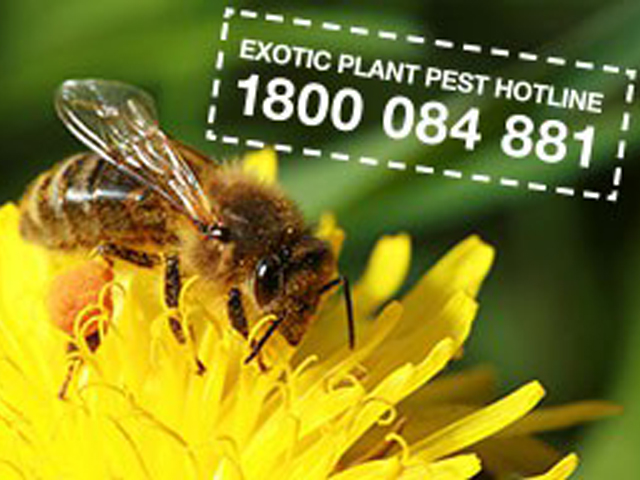Biosecurity is defined as a selection of procedures or measures that are designed to protect the population against harmful biological or biochemical substances. In order to combat the harmful substances, biosecurity requires an entire community effort, beginning at farm level. Growers have the responsibility to maintain sound, farm biosecurity practices to protect their plants, livelihood and the greater industry from both endemic and exotic pests.
What Can You Do?
Nursery hygiene is critical to maintaining effective biosecurity. Nursery & Garden Industry Australia has developed BioSecure HACCP, an industry-specific biosecurity program for production nurseries and growing media businesses that provides them with a systematic approach to assess on-farm biosecurity hazards. This program also identifies how best to manage these identified risks.
For further information on BioSecure HACCP click here.
Spotted anything unusual?
Speed is critical when it comes to dealing with exotic pests. Detecting an exotic pest early and mounting a response quickly enough to successfully eradicate it is imperative.
Businesses are called to constantly be on the lookout for something unusual in their nursery. If you have spotted something unusual or suspect a pest that represents a risk to your business and the Australian nursery industry, call the Exotic Plant Pest Hotline on 1800 084 881.
Your call will be forwarded to an experienced person in the state department of agriculture who will ask some questions about what you have seen and may arrange to collect a sample. Every report will be taken seriously, checked and treated confidentially.
If inquiries confirm the presence of an exotic pest then authorities will work with NGIA to develop an action plan. Actions are guided by the seriousness of the pest incursion. If the pest can be stamped out, an eradication response may be launched with actions guided by the EPPRD. If eradication is not thought to be technically feasible or economically beneficial, then actions may be directed at containment and control.
Why report an exotic pest?
Is left unreported, an exotic pest infestation could quickly spread and may become too established to eradicate successfully. This could lead to significant losses for businesses and even the entire nursery and garden industry for years to come. Therefore, it is imperative that the first sign of something unusual is reported immediately.
To download a copy of the nursery industry Spotted Anything Unusual information card, please click here.
STATE & TERRITORY REGULATIONS
A vital component of the Australian economy is the trade of plants across Australia, both intra and interstate. Accumulating in the millions annually, it is important to enforce Plant Health Standard (PHS) regulations.
As a grower, it is imperative that you adhere to state and territory regulations (e.g. interstate certification protocols and export protocols).
As regulations vary between each jurisdiction, it is important to contact the relevant authority in the destination state prior to shipment of plants.
Details of state and territory plant health services can be found here.
PLANT LABELLING
Labelling of plants prior to interstate movement has become a necessity in some jurisdictions. Nursery & Garden industry Australia has developed national plant labelling guidelines to provide guidance on how to correctly label plants. The guidelines have been developed to reduce confusion in relation to the content of labels used on ornamental plants and how plant information is conveyed to the market.
These guidelines cover four principles and include:
- Correct botanical names nomenclature
- Intellectual property Plant Breeders Rights and Trademarks
- Plant growth requirements and characteristics
- Potentially harmful plants health and environment
Adhering to these guidelines will assist in meeting state and territory regulations.
Website
Send Enquiry To Greenlife Industry Australia



